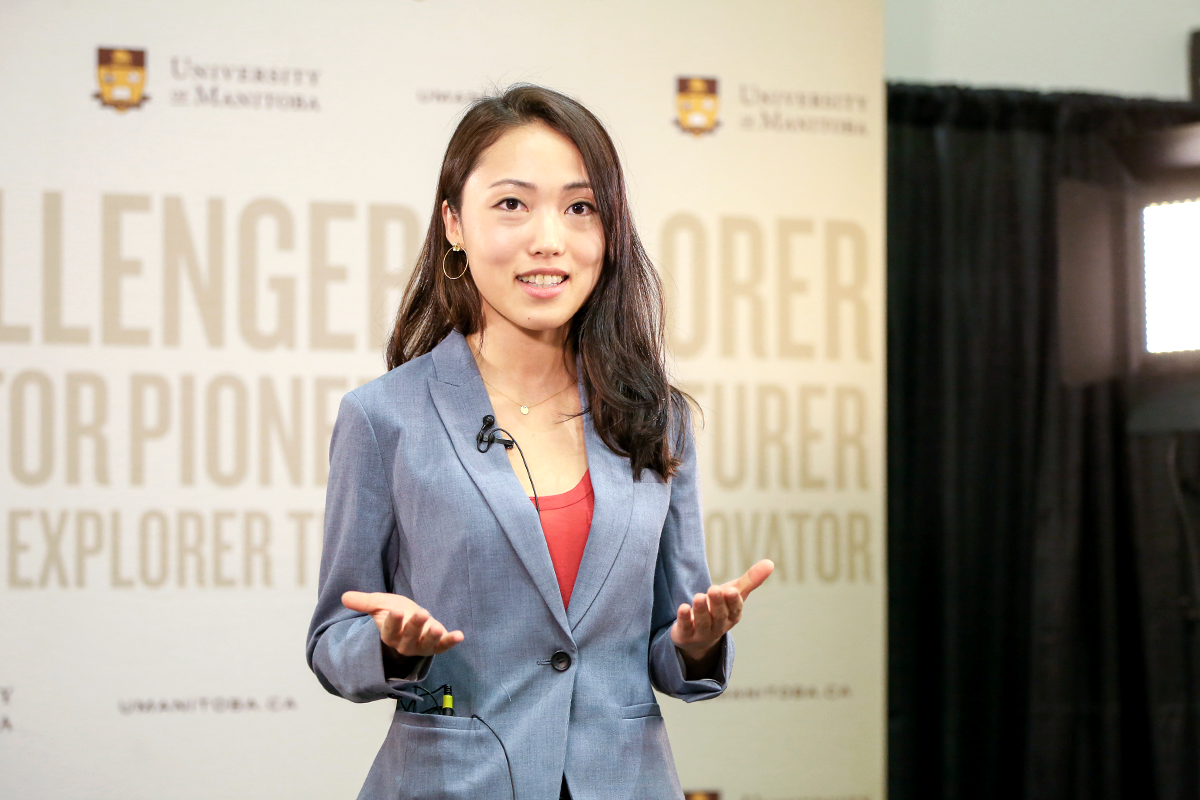
Yang Xin Zi (Cindy) Xu PRESENTING AT THE 2018 THREE MINUTE THESIS (3MT®) COMPETITION.
Solving a problem of the sexes
In broad terms, men and women are at greater risk for different diseases. Why? And can the two sexes borrow cellular tricks from each other to, well, not suffer from those particular thing?
Yang Xin Zi (Cindy) Xu, a PhD student and 3MT finalist, has answers to both of these monumental questions. Her research with her advisor Suresh Mishra in the Max Rady College of Medicine is at a tipping point.
Xu has zeroed in on a particular protein named prohibitin, which she suspects is key to managing many diseases. She is the first person to discover that this protein, though identical in all humans, acts differently in men and women.
“Human knowledge,” Xu says, “is like a circle. PhD students extend the circle. We’re doing something that no one has ever looked at. We’re helping to expand human knowledge.”
To understand her work, Xu asks that you imagine a video game controller inside every cell in your body, directing the mind-boggling amount of actions constantly required to keep you alive and healthy. Women have their own unique controller, as do men. But one key component of this controller is identical in every body, regardless of sex: the joystick, i.e. prohibitin.
Here’s the curious part: Xu found that male and female sex hormones change how the joystick functions. Here’s the remarkable part: She can manipulate the joystick in animal models.
Compared to women, men are more likely to die from cancer of the stomach, liver and kidneys; they also succumb to more infectious diseases and have weaker responses to vaccines. Women, compared to men, have more autoimmune sicknesses and their heart attacks prove more fatal.
In other words, male and female bodies take unique paths in developing diseases, and prohibitin opens an opportunity to manipulate these pathways—to move the joystick one way or the other and change the way the game plays out.
“By understanding a protective outcome in one sex, we can utilize that to correct a vulnerable outcome in the other sex,” Xu says.
All of this excites Xu, who has a passion for learning and teaching. Indeed, when she’s not tutoring or researching or studying, she volunteers with Diabetes Canada, teaching others about the condition.
“I’ve made a habit out of giving back to my community through volunteerism, she says. “I am passionate about education.”
Meet the other new faces of innovation and discovery.
Research at the University of Manitoba is partially supported by funding from the Government of Canada Research Support Fund.






